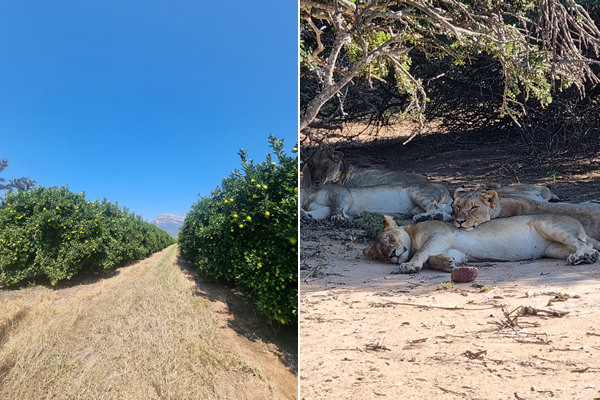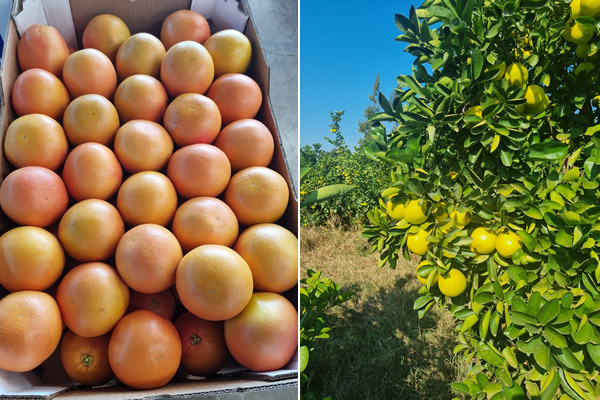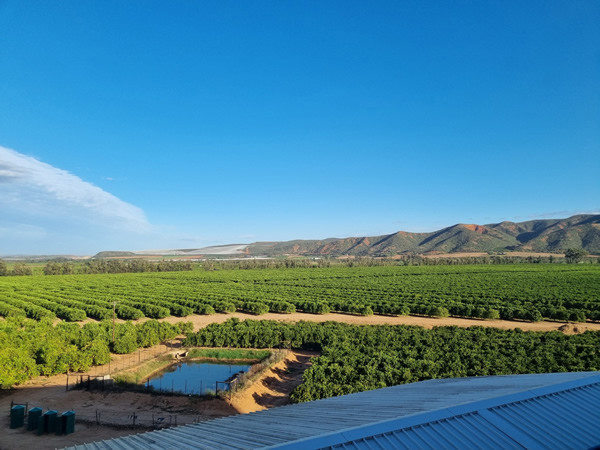The arrival of the first grapefruit and mandarins heralds the start of the South African citrus season at Origin Fruit Direct in the Netherlands. The first lemons are also expected by the end of this week. "Everyone's optimistic, as always before a season, but there are also hurdles to overcome in South Africa," begins Randolf Aaldijk, who visited the South African growing areas recently.

Right: the reason why some pickers refuse to work.
When asked what the biggest challenges are, Randolf answers, laughing: "How much time do you have? Because there are quite a few." Loadshedding - when electricity is shut down at certain times to relieve the power grid - is a particularly prevalent problem. "Sometimes there's even no power for ten to 12 hours a day. That greatly affects the general public, but also things like packing facilities and irrigation," he says.
"All costs like packaging, diesel, fertilizers, and minimum wages have skyrocketed too. That significantly increases the cost of exporting a box of fruit significantly. Sea freight costs have been sky-high in recent years; that's come down a bit but aren't yet where they should be. I saw plenty of citrus farms for sale, so this will be another year of survival."
"Also, to meet European regulations, huge costs are being incurred to eliminate Citrus Black Spot. Unfortunately, the weather hasn't cooperated this year, causing this fungus to develop considerably in certain areas. Because of that, some growers aren't even taking the risk of exporting to Europe. However, with a weak Rand, the current exchange rate is in South Africa's favor, and the euro/dollar exchange rate isn't completely disappointing either," explains Randolf.

"The grapefruit season started better than in other years. The market is quite empty, with declining Turkish volumes, and Spain and Israel don't have too much grapefruit either. So, the first South African grapefruit have good prices. They're trying to send less grapefruit, spread over a shorter period anyway. Also, hoping to get the prices they need, they aren't exporting large or small sizes or Class II."
"Mandarin prices are good too. I'm amazed at the high prices boxes of Satsumas are fetching. During my visit to South Africa, the Satsuma harvest was over, and they'd started harvesting varieties like Nova and Clemenule. That crop looked good with good quality, but how they make it to market always remains to be seen," says Aaldijk.
"And once the first lemons arrive, it's time to wait for the first South African oranges. The harvest generally looks good. There's been enough rainfall in most areas, especially in the north, and sizing is good. There are few large sizes available because, for these, everyone's buying oranges from Egypt. That season should thus finish earlier than initially expected."

"The smaller sizes' surplus made for meager prices, but those are rising slightly now. Spain doesn't have much supply anymore. Greece will, as usual, focus mainly on the Balkans and Eastern Europe, and there's also little product coming from Morocco. That paves the way for a good start to the overseas season," Randolf concludes.
 For more information:
For more information:
Randolf Aaldijk
Origin Fruit Direct
250 Albert Plesmanweg
3088 GD, Rotterdam, NL
Tel: +31 (0) 882 449 300
Email: randolf@originfruitdirect.nl
Website: www.originfruitdirect.nl
